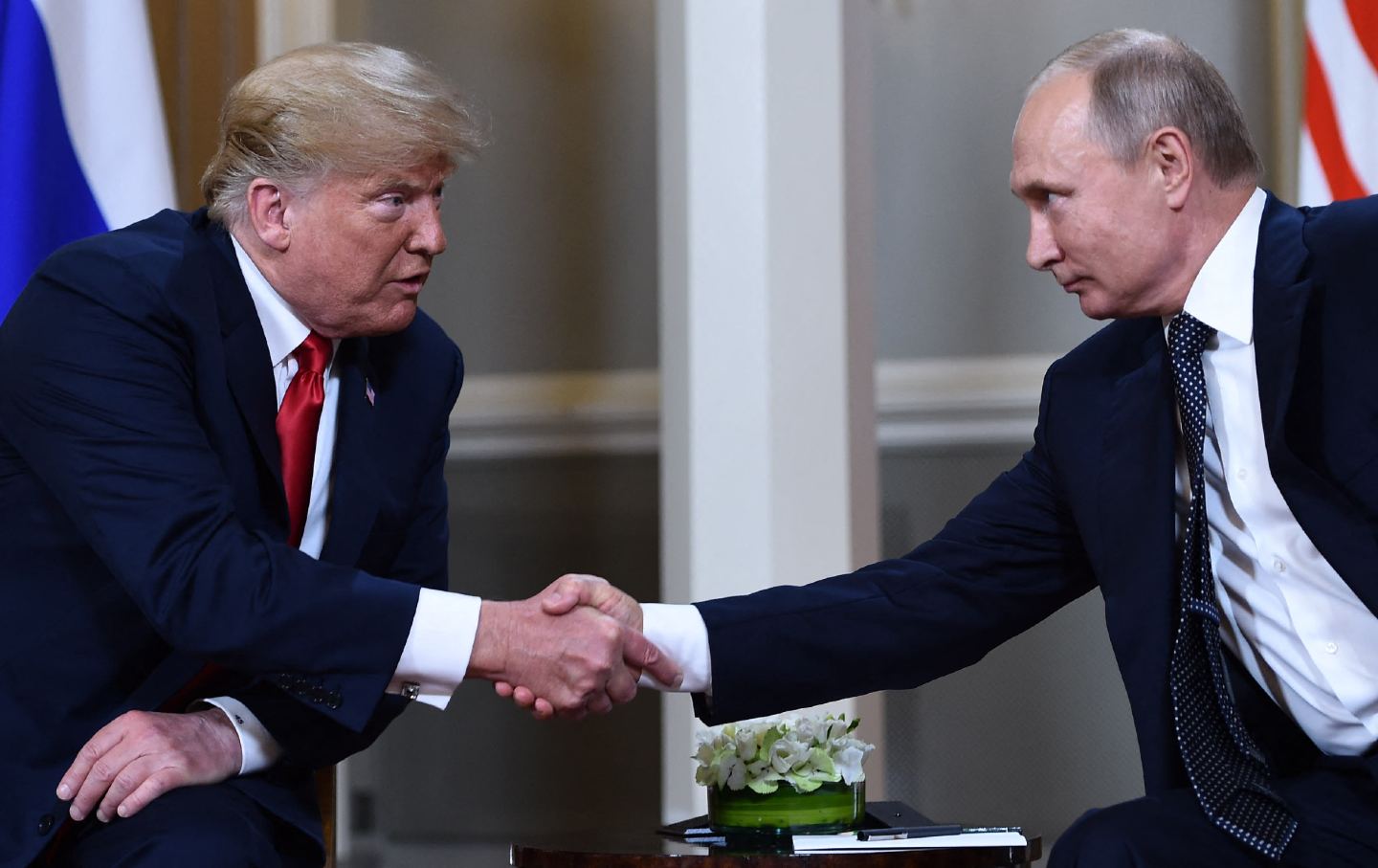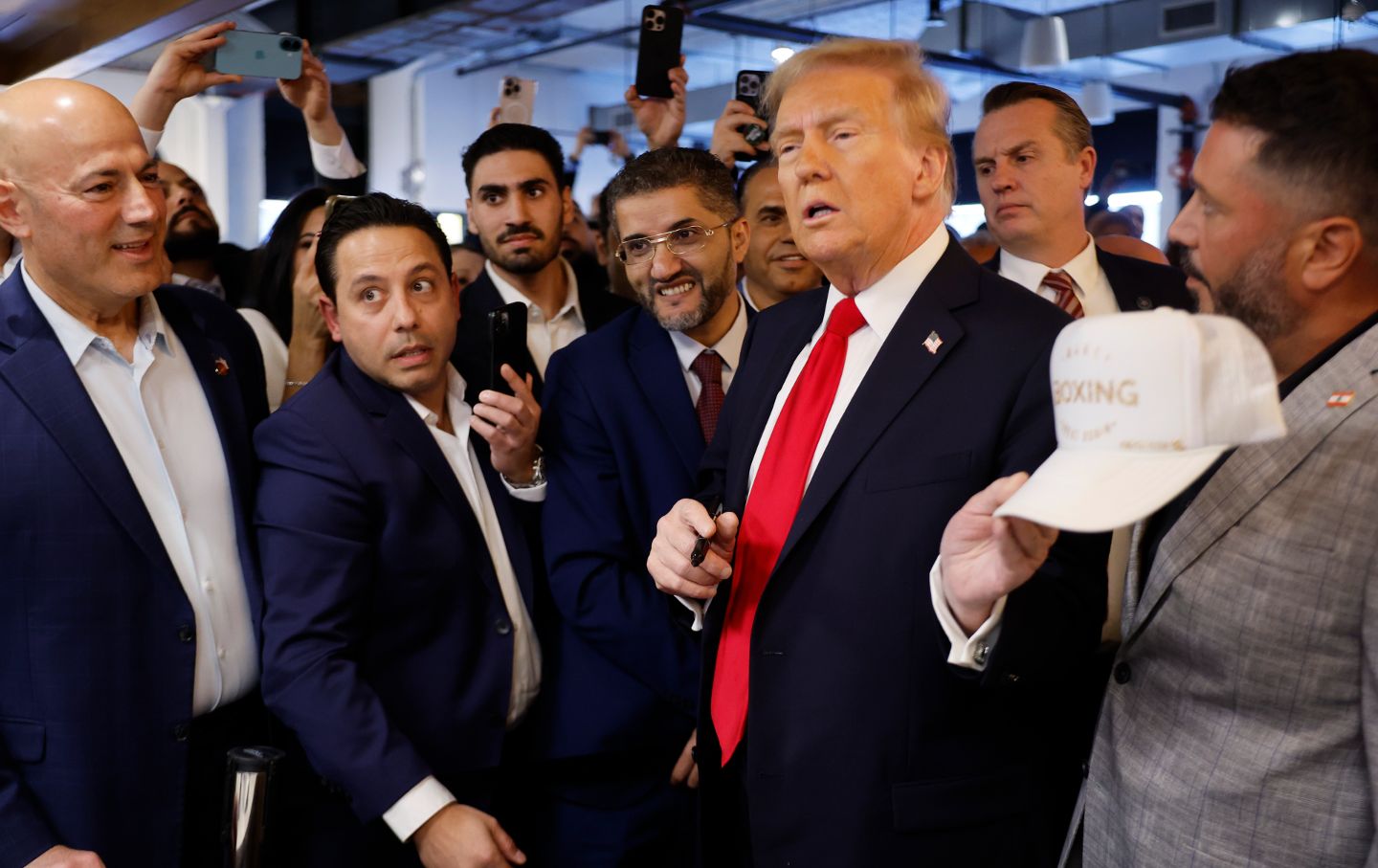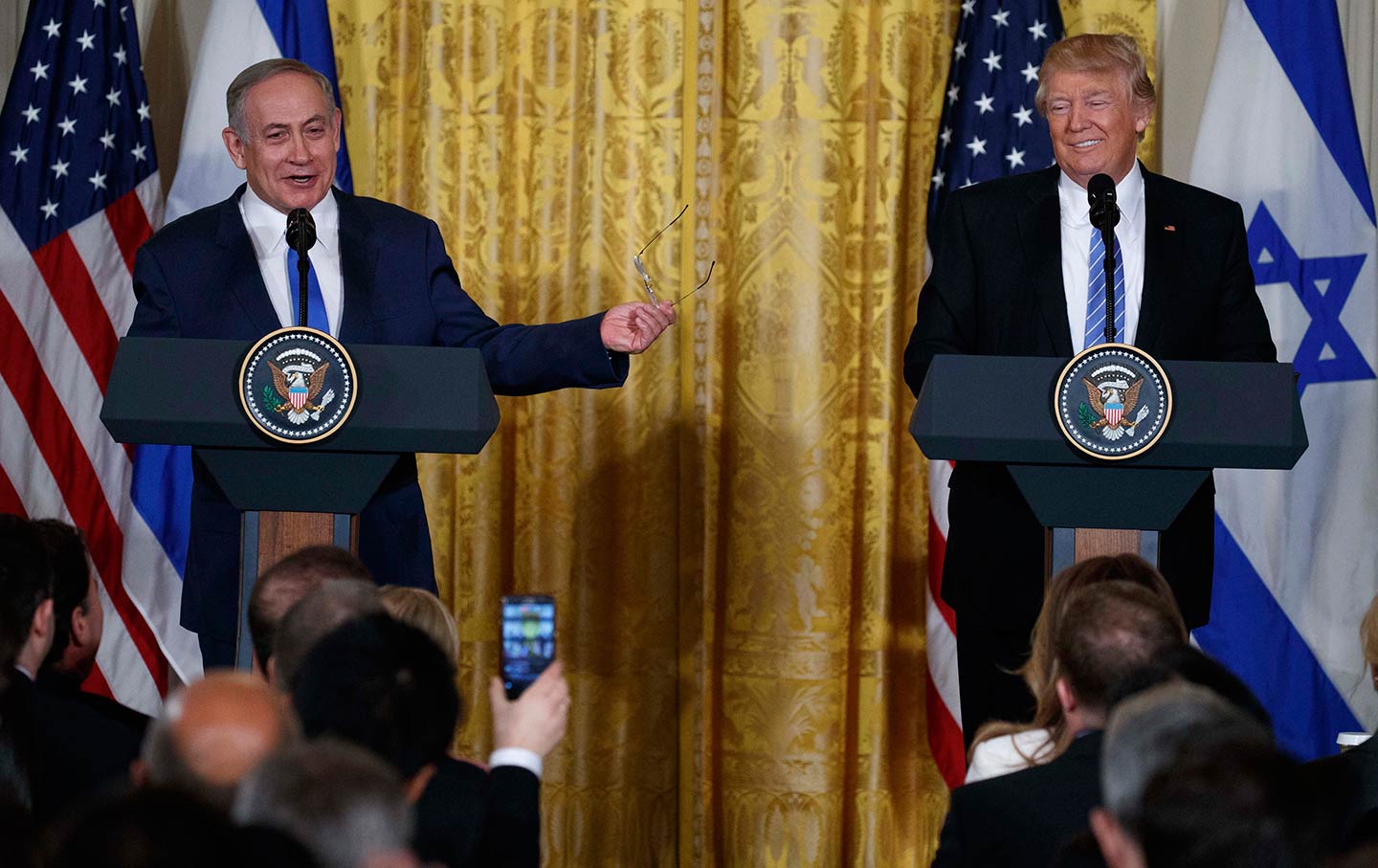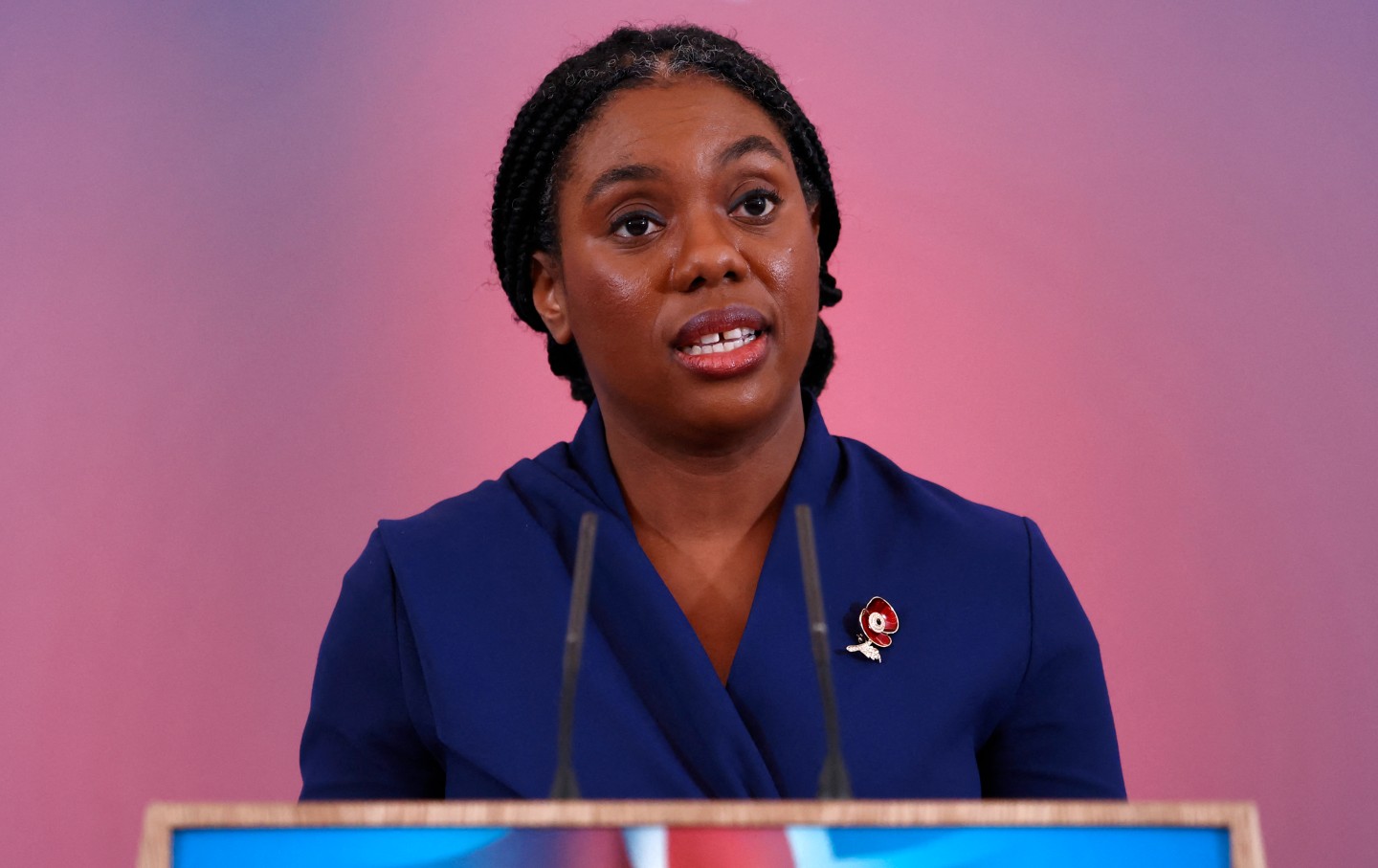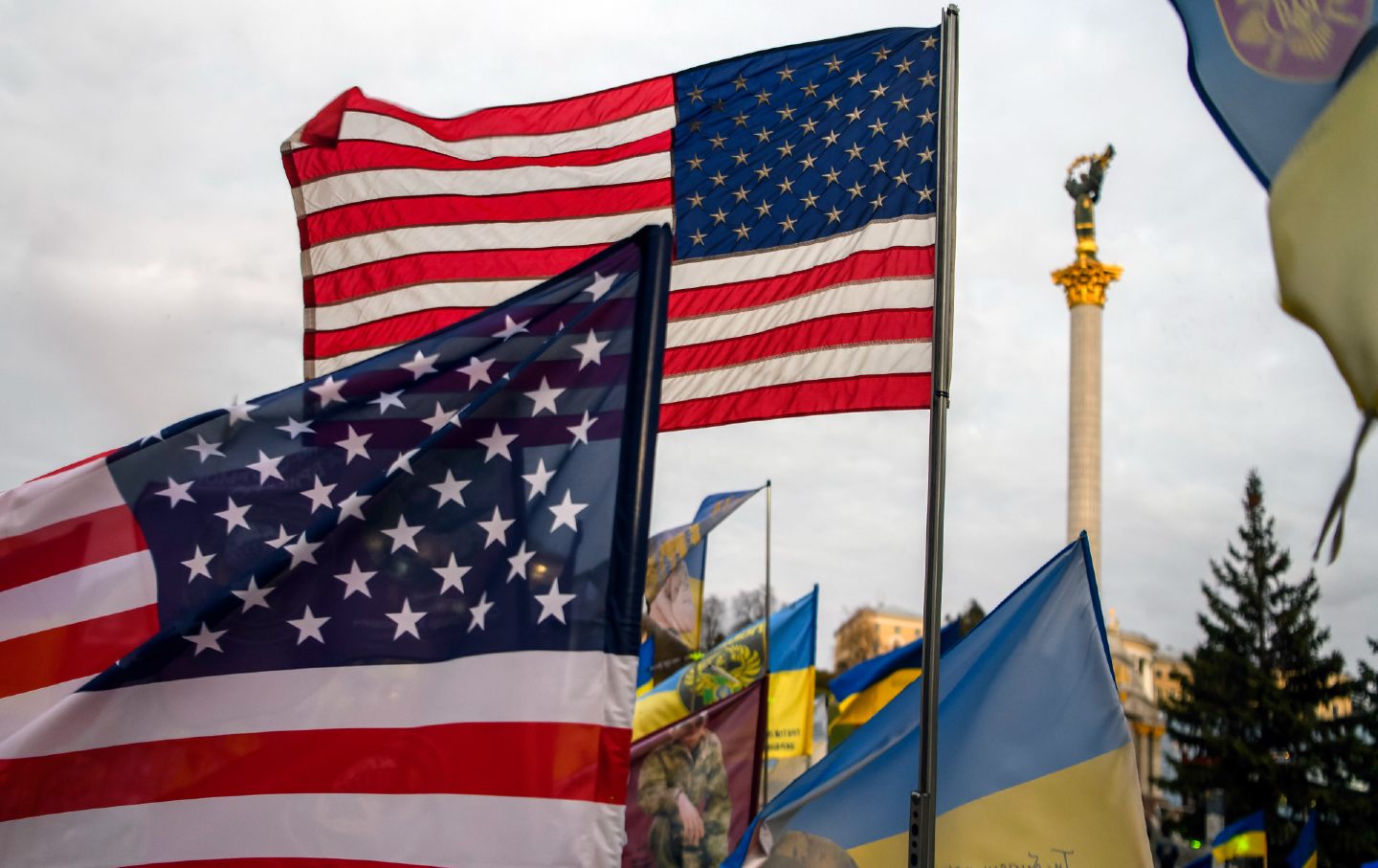/
November 20, 2024
Warning From the Past
In a new film, journalists confront a dictator.

Next year a wave of new films and documentaries will mark the 50th anniversary of the end of the American War in Vietnam. One of the feature films—Meeting with Pol Pot—is about me, a fictionized version of my rare and dangerous 1978 reporting trip inside Cambodia while Pol Pot was in power, committing genocide.
It’s been turned into a haunting thriller: Rendezvous avec Pol Pot is the original French title. Until recently I feared the film would get lost in the mix of other Vietnam war films. Or purposely ignored, since the rise of the brutal Khmer Rouge is one of the most painful and disputed legacies of the American war.
But then Donald J. Trump was elected president. His campaign was a firehose of lies and “disinformation,” with promises of authoritarian rule, violent revenge against opponents and suppression of journalists who traffic in facts. The world leaders he admires are authoritarian and dictatorial: Russia’s Vladimir Putin, Hungary’s Viktor Orbán, North Korea’s Kim Jong Un, and Israel’s Benjamin Netanyahu.
Suddenly this historical film about journalists unknowingly risking their lives while trying to report from a dictatorial regime has a contemporary feel. And Meeting with Pol Pot is a rare journalist movie without a triumphant ending. Journalists don’t save the day or even each other.
This is the ninth film about the Cambodian genocide by Rithy Panh, the Franco-Cambodian director who is a survivor himself. Panh’s mission is to preserve the history and memory of his country’s descent into hell through compelling visual stories. Meeting with Pol Pot premiered at the Cannes Film Festival this year and is Panh’s second movie to be Cambodia’s official Academy Award nominee for best foreign feature film. (His Missing Picture was short-listed in 2013.)
Based loosely on my book When the War Was Over, this is the first film in which Panh has used foreign protagonists to tease out the utter terror that is a hallmark of dictatorships. Meeting with Pol Pot is true to the basic outline of the two-week trip that included me, of The Washington Post, Richard Dudman of the St. Louis Post Dispatch, and Malcolm Caldwell, a British academic. However, Panh reimagines us as a trio of French reporters. Dudman is a photographer and Caldwell an intellectual writer.
Current Issue
Panh turned my character into an older French but faithful version of myself. Renamed Lise and played by the renowned actress Irene Jacob, she is the linchpin of the drama, the only person on the trip who had lived in Cambodia during the war, as I had, and the first to see through the intense screen of propaganda and manipulation.
The film opens with the trio peering down from an airplane as it lands in Cambodia, a forbidding country that had isolated itself from the world for three years. They are the first journalists allowed in Pol Pot’s Cambodia. They have one impossible assignment: find out if the rumors are true. Is the Khmer Rouge committing genocide through hard labor, starvation, and murder?
From the first, they are given no freedom of movement. Everything they see, every person they interview, every site they visit is orchestrated and manipulated to present a picture of harmony, equality and prosperity. Attempts to break away are blocked by armed guards. Their guest houses are locked from outside; they are under the equivalent of house arrest.
The manipulation by their pleasant escort works. The journalists argue about what they see, as we did during our trip. They ask: were the labor cooperatives we visited Potemkin villages designed to hide the desperate conditions that Cambodians were said to be enduring? Or were these cooperatives the standard for the country, a humane if radical reordering of society for everyone’s benefit? My character is skeptical and fears the worse.
The question they don’t ask is what price they will pay if they do discover massive human rights violations.
In the film, Panh suggests the answer by showing what the Khmer Rouge is hiding from the reporters: the actual abject labor camps, the starving farmers, the capricious punishments and torture of Cambodians in everyday life.
As the journalists become more curious and demanding, the sense of danger increases. It reaches a crescendo on the last day when they interview the illusive Pol Pot, as we did. The denouement is gruesome. Assassins are sent to the journalists’ guest house where they murder the intellectual journalist. (In real life it was Caldwell, the British academic.)
In the last scene my character is frozen in grief as she accompanies the coffin of her murdered colleague to an airplane to return home. Exactly as it happened.
Not shown is the dueling articles Dudman and I published about Cambodia. I described the indirect evidence that led me to conclude the regime was guilty of mass human rights abuses. Dudman wrote that, on the contrary, he saw a population that was “clearly not being worked to death and starved to death.”
Popular
“swipe left below to view more authors”Swipe →
-
Donald Trump Has NOT Won a Majority of the Votes Cast for President
Donald Trump Has NOT Won a Majority of the Votes Cast for President
-
The Left Didn’t Sink Kamala Harris. Here’s What Did.
The Left Didn’t Sink Kamala Harris. Here’s What Did.
-
Harris’s Gaza Policy Was a Disaster on Every Level
Harris’s Gaza Policy Was a Disaster on Every Level
-
How Wisconsin Lost Control of the Strange Disease Killing Its Deer
How Wisconsin Lost Control of the Strange Disease Killing Its Deer
The result: Our trip was deemed a fluke. We couldn’t agree on what we’d seen, and the murder of Caldwell was considered an abomination. In those days, journalists were rarely killed in war, much less by governments. During the entire 10-year American war in Vietnam, 61 journalists were killed.
So much has changed since then. Last year alone, 78 journalists were killed. The age of the authoritarian leader, or dictator, has spread around the globe. Trump won promising to ignore basic rights, threatening his political opponents, using the military to deport immigrants and calling journalists “the enemy of the people.” His party now controls Congress, the White House, and arguably the Supreme Court.
Journalists are readying their defenses against the inevitable Trump administrations attacks on mainstream media. This movie is one for the age of Trump.
Rithy Panh’s intimate and cautionary movie powerfully evokes what it was like for reporters taking great risks with scant rewards in a chaotic dictatorial regime. Cambodia in 1978 is not the United States in 2024, not at all. But that doesn’t erase questions journalists now face. In authoritarian countries, printing the truth is denounced as misinformation and as a threat to national security. What will be the penalties in the United States?
We cannot back down
We now confront a second Trump presidency.
There’s not a moment to lose. We must harness our fears, our grief, and yes, our anger, to resist the dangerous policies Donald Trump will unleash on our country. We rededicate ourselves to our role as journalists and writers of principle and conscience.
Today, we also steel ourselves for the fight ahead. It will demand a fearless spirit, an informed mind, wise analysis, and humane resistance. We face the enactment of Project 2025, a far-right supreme court, political authoritarianism, increasing inequality and record homelessness, a looming climate crisis, and conflicts abroad. The Nation will expose and propose, nurture investigative reporting, and stand together as a community to keep hope and possibility alive. The Nation’s work will continue—as it has in good and not-so-good times—to develop alternative ideas and visions, to deepen our mission of truth-telling and deep reporting, and to further solidarity in a nation divided.
Armed with a remarkable 160 years of bold, independent journalism, our mandate today remains the same as when abolitionists first founded The Nation—to uphold the principles of democracy and freedom, serve as a beacon through the darkest days of resistance, and to envision and struggle for a brighter future.
The day is dark, the forces arrayed are tenacious, but as the late Nation editorial board member Toni Morrison wrote “No! This is precisely the time when artists go to work. There is no time for despair, no place for self-pity, no need for silence, no room for fear. We speak, we write, we do language. That is how civilizations heal.”
I urge you to stand with The Nation and donate today.
Onwards,
Katrina vanden Heuvel
Editorial Director and Publisher, The Nation
Elizabeth Becker
Elizabeth Becker is the author of the award-winning books You Don’t Belong Here: How Three Women Rewrote the Story of War and When the War Was Over: Cambodia and The Khmer Rouge Revolution. She began her career covering the Cambodia war for The Washington Post. As a New York Times correspondent, she covered international economics, the Pentagon and foreign policy.
More from The Nation
The Case Against Joe Biden for Complicity in Genocide
The Case Against Joe Biden for Complicity in Genocide
The ICC has applied for an arrest warrant for Benjamin Netanyahu. But Israel’s assault on Gaza has been made possible by US support.
The View from Moscow
The View from Moscow
It’s complicated.
Gazans Heard Trump’s Promises. Now They Want Him to Keep Them.
Gazans Heard Trump’s Promises. Now They Want Him to Keep Them.
Trump made a direct pitch to end the war on Gaza. The people still living there were listening.
The Fallout of Biden’s Middle East Policy Is Now Trump’s Responsibility
The Fallout of Biden’s Middle East Policy Is Now Trump’s Responsibility
In Trump’s hands, the country’s diplomatic strategy in the Middle East can only get worse.
The New Face of British Conservatism is Black—and Female
The New Face of British Conservatism is Black—and Female
The London-born daughter of Nigerian parents presides over the ruins of 14 years of Tory rule. Can her brand of nativism-lite bring the party out of the wilderness?
Behind Closed Doors, Ukraine Anxiously Watched the US Election Unfold
Behind Closed Doors, Ukraine Anxiously Watched the US Election Unfold
Ukrainian officials maintain an optimistic, bipartisan approach to the US, but in private, many Ukrainians are pessimistic about an increasingly bleak war and the US role in it.


